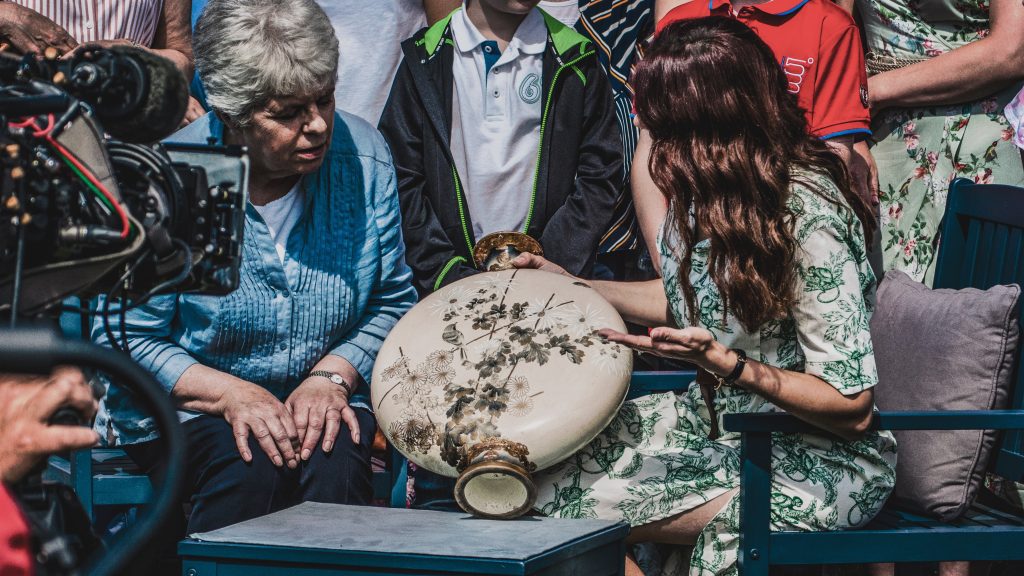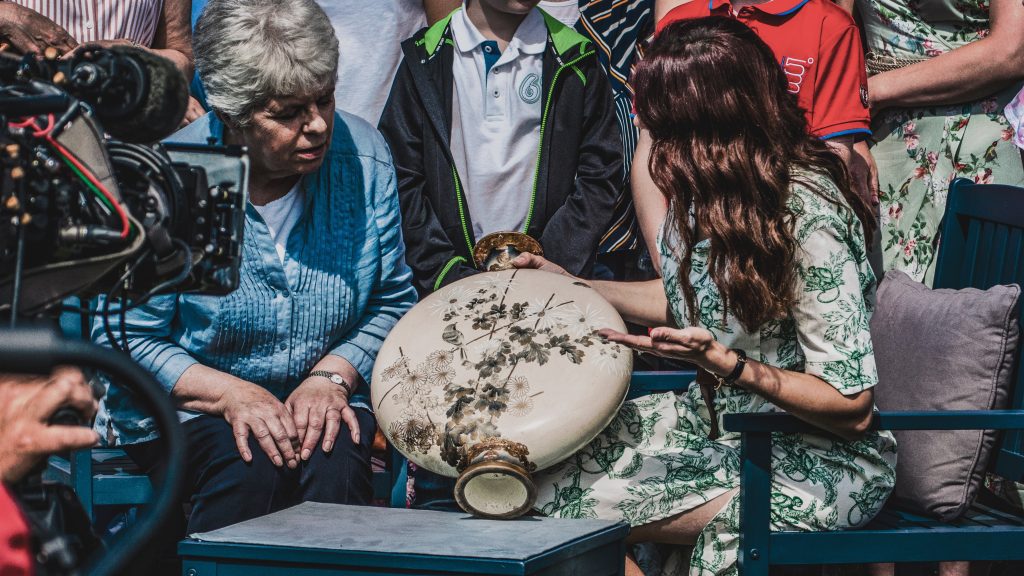Table of contents
Let’s embark on a captivating journey through the world of art appraisal, where the burning question, “How much does an art appraisal cost?” takes center stage. Art isn’t just strokes on a canvas; it’s a tapestry woven with creativity, history, and human passion spanning centuries. But what if you’re curious about the worth of that particular painting or sculpture gracing your living room wall? How can you unveil the value of that cherished masterpiece? This is where art appraisal steps into the limelight.
Art is a universe of its own, a mesmerizing realm filled with an astonishing variety of styles, genres, and eras. It ranges from the timeless elegance of classical paintings to the avant-garde marvels crafted by contemporary sculptors. Yet, within this rich tapestry, the value of art takes on a fluid and dynamic form. It can ascend to astonishing heights or comfortably dwell in the realm of affordability, all guided by a multitude of intriguing factors.

Understanding the Value of Art and Art Appraisal Cost Factors
Art appraisal provides valuable insights into the financial worth of an artwork. It answers questions like, “How much is this painting worth in today’s market?” This information is crucial for art collectors who want to keep track of the value of their investments. It also helps art enthusiasts and sellers set realistic prices when they decide to sell their art.
Consider, for instance, a well-known painting like Vincent van Gogh’s “Starry Night” Through the lens of art appraisal, one can gain deeper insights into its financial significance. With the help of resources like the FindArtInfo database, which tracks auction prices and sales records, one can see how the value of “Starry Night” has evolved over the years. For instance, a thorough analysis might reveal that a particular edition of this masterpiece was sold at auction for a staggering sum, perhaps exceeding tens of millions of dollars. This data not only showcases the painting’s enduring appeal but also highlights the dynamic nature of the art market.
Insurance Protection
Art is not just valuable in terms of aesthetics; it can also be a significant financial asset. Many art owners invest substantial sums in their collections. To protect these investments, they often purchase art insurance. However, insurance companies require accurate appraisals to determine coverage and premiums. In the unfortunate event of theft, damage, or loss, an appraisal ensures that the owner is adequately compensated for the true value of the artwork.
Estate Planning
Art is often passed down through generations as part of an individual’s estate. In estate planning, it’s crucial to establish the value of art assets for taxation and distribution purposes. An accurate appraisal helps determine the fair market value of art, ensuring a smooth transition to heirs or beneficiaries.
Selling or Donating Art
Whether you’re selling an artwork or donating it to a museum or nonprofit organization, knowing its fair market value is essential. When selling art, you want to set a competitive price that attracts potential buyers while ensuring a fair return on your investment. For donations, the IRS requires a certified appraisal to determine the tax-deductible value of the donated artwork.
Now that we understand why art appraisal is needed, let’s delve into the heart of the matter: how much does an art appraisal cost?
The cost of an art appraisal can vary significantly based on several factors:
1. Type of Appraisal
There are different types of art appraisals, each serving a specific purpose. The most common types include insurance appraisals, fair market value appraisals, donation appraisals, and estate appraisals. The complexity and depth of research required for each type can impact the cost. Insurance appraisals, which focus on replacement value for insurance purposes, may cost less than fair market value appraisals, which involve more in-depth analysis.
| Aspect | Insurance Appraisal | Fair Market Value Appraisal | Donation Appraisal | Estate Appraisal |
| Purpose | Insurance coverage in case of loss, theft, or damage. | Determine the current market value for buying or selling artwork. | Determine the tax-deductible value for donated artworks. | Determine the fair market value for selling or distributing artwork. |
| Type of Value Determined | Replacement value for insurance purposes. | Market value based on current market conditions. | Fair market value for tax deduction purposes. | The complexity of the estate’s art collection, the appraiser’s qualifications, the extent of research needed, and the geographic location |
| Art Appraisal Cost Factors | The complexity of the artwork, the appraiser’s qualifications, the extent of research needed, and geographic location | The complexity of the estate’s art collection, the appraiser’s qualifications, the extent of research needed, and geographic location | The complexity of the artwork, the appraiser’s qualifications, the extent of research needed, and geographic location | May or may not include a certificate. |
| Research and Documentation | In-depth analysis of provenance, condition, artist’s biography, and exhibition history | Comprehensive research on the artist, provenance, and condition. Extensive data on recent sales and market trends. | Detailed research on the artwork’s history, artist biography, and condition Research comparable sales and market trends. | Thorough research on the art collection’s history, provenance, and condition. Assessment of each artwork within the estate. |
| Appraisal Report | Detailed appraisal report outlining replacement value and condition | Comprehensive appraisal report detailing market value, comparable sales, and condition assessment | Detailed appraisal report outlining fair market value and condition | Comprehensive appraisal report detailing fair market value and condition |
| Certification | May or may not include a certificate. | Usually includes a certificate. | May or may not include a certificate. | May or may not include a certificate. |
2. Complexity of the Artwork
The intricacy and uniqueness of the artwork being appraised can also affect the cost. Highly intricate or rare pieces often require more time and expertise to appraise accurately, potentially driving up the appraisal fee.
3. Appraiser’s Qualifications
The qualifications and experience of the appraiser play a crucial role in determining the cost. Accredited and experienced appraisers often charge higher fees, but their assessments are generally more reliable and respected in the art community.
4. Research and Documentation
Art appraisals involve thorough research and documentation. The more extensive the research and documentation required, the higher the art appraisal cost. Historical or rare artworks, for example, demand in-depth analysis of their provenance, artist biography, and exhibition history.
5. Geographic Location
The art appraisal cost can also vary by geographic location. Appraisers in major cities or regions with a high cost of living may charge more than those in smaller towns or rural areas.
So, what can you expect in terms of actual costs? Here are some approximate figures to provide a general idea:
- Insurance Appraisal; typically ranges from $100 to $500 per artwork.
- Fair Market Value Appraisal: Generally falls between $150 to $1,000 per artwork.
- Donation Appraisal: Typically costs between $200 to $600 per artwork.
- Estate Appraisal: This can vary widely, ranging from $200 to $1,500 per collection, depending on the size and complexity of the estate.
It’s important to remember that these are rough estimates, and the actual cost of an art appraisal may be higher or lower based on the specific circumstances and the factors mentioned earlier.
Art appraisal plays a vital role in the art world by providing clarity and financial protection to art owners, collectors, and enthusiasts. While the art appraisal cost can vary, it is a necessary investment for anyone who wants to understand the value of their artwork, ensure proper insurance coverage, engage in estate planning, or make informed decisions when selling or donating art. Whether you own a single painting or an extensive collection, knowing the worth of your art can bring peace of mind and help you navigate the intricate world of art with confidence.
For further insights into the world of art appraisal and to explore the dynamic nature of art’s worth, you can refer to resources like the FindArtInfo database, which tracks auction prices and sales records. This invaluable tool allows you to delve deeper into the evolving tapestry of the art market, further enriching your understanding of art’s financial and cultural significance.
FAQs
How Can I Determine the Value of My Artwork?
To determine the value of your artwork, consider getting it professionally appraised. An art appraisal involves a qualified expert assessing various factors, including the artist’s reputation, rarity, condition, and current market trends.
Why Do I Need to Know the Value of My Art?
Knowing the value of your art is essential for insurance coverage, estate planning, selling, or donating artwork. It ensures you have accurate information about financial and logistical decisions.
What Types of Art Appraisals Are There?
There are different types of art appraisals, such as insurance appraisals, fair market value appraisals, donation appraisals, and estate appraisals. Each serves specific purposes and involves various valuation methods.
How Does the Complexity of Artwork Affect Appraisal Costs?
The complexity of an artwork, including its uniqueness and rarity, can impact appraisal costs. Highly intricate or rare pieces often require more time and expertise, potentially leading to higher appraisal fees.
What Role Do Research and Documentation Play in Art Appraisal?
Research and documentation are critical in art appraisal, especially for historical or rare artworks. Thorough research into provenance, artist biography, exhibition history, and comprehensive documentation ensures accurate valuations.
What Is the Range of Costs for Different Types of Art Appraisals?
Art appraisal costs vary based on the type of appraisal. Insurance appraisals typically range from $100 to $500 per artwork; fair market value appraisals range from $150 to $1,000 per artwork; donation appraisals cost between $200 to $600 per artwork; and estate appraisals can vary widely from $200 to $1,500, depending on complexity.
What’s Included in a Professional Appraisal Report?
A professional appraisal report typically includes:
– Detailed Item Description
– Statement Report
– Explanation of Appraisal Method
– Ownership History
– Appraiser Certification
– Appraiser Code of Ethics
– Appraiser’s Signature
Where Can I Access Additional Resources and Data on Art Auction Prices?
For deeper insights into art’s financial and cultural significance, you can explore the FindArtInfo database. This comprehensive resource provides access to extensive auction prices and sales records, enriching your understanding of the dynamic art market. Visit the FindArtInfo website here for more information.

